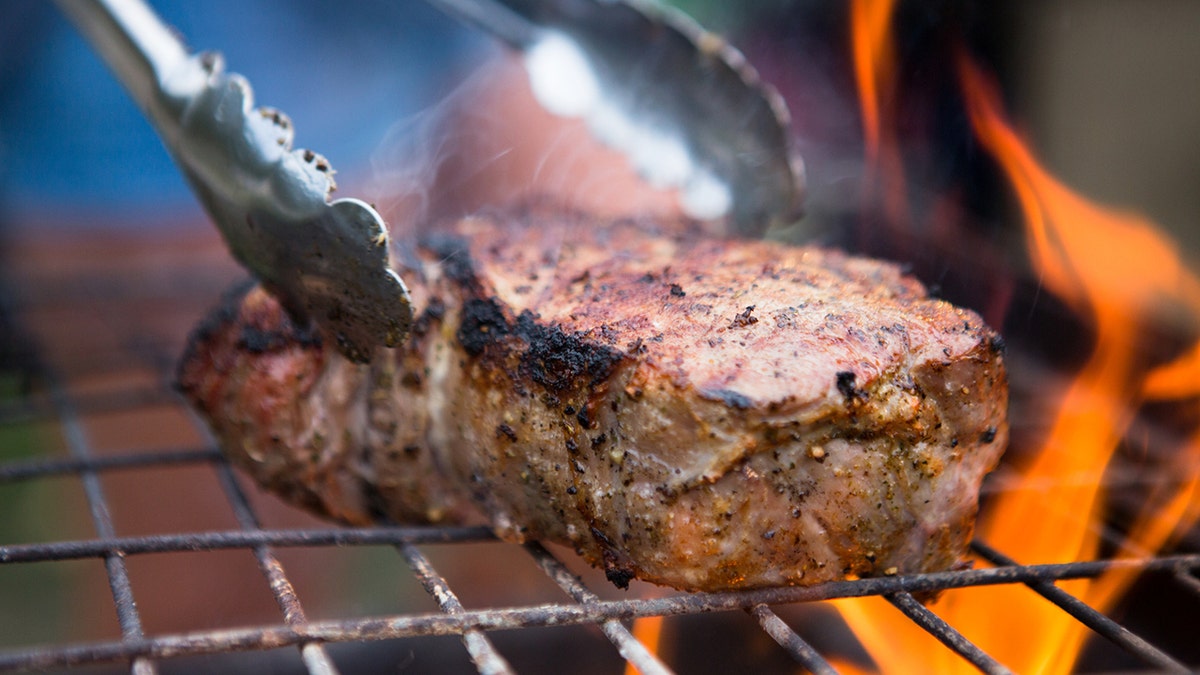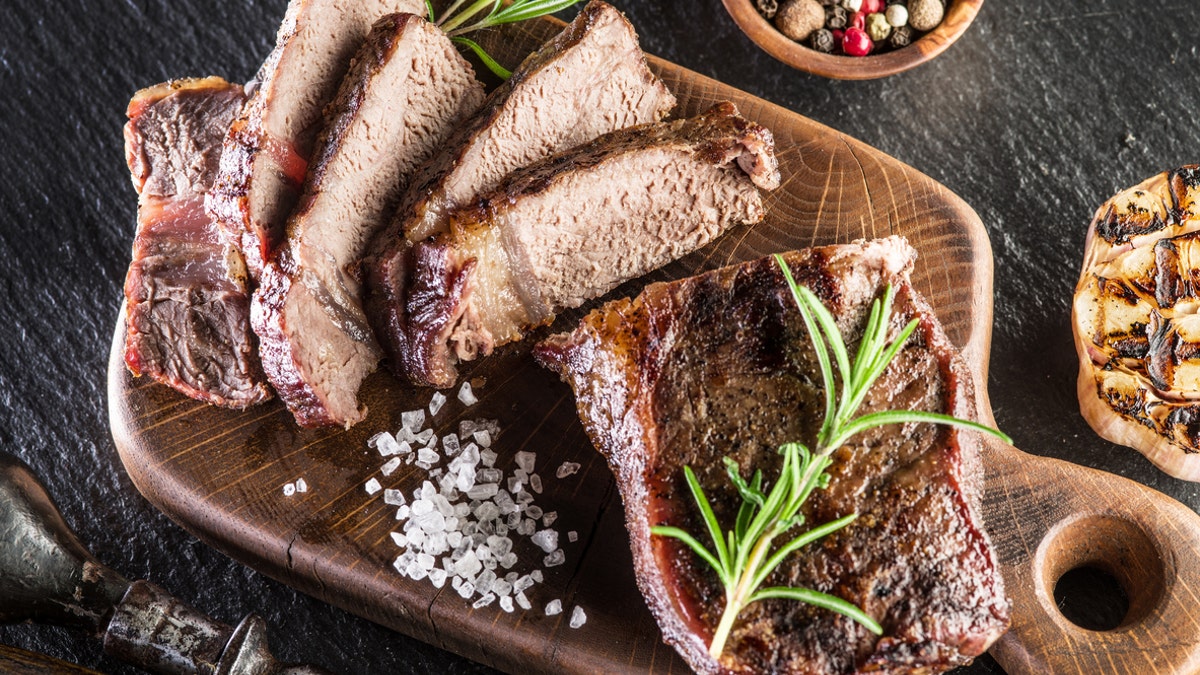
Don't be afraid to flip that steak more than once. It actually might cook faster and more evenly. (iStock)
When I first started dating my husband, an avid hunter, I was overwhelmed by the idea of cooking with wild game. Thankfully, my mother-in-law was there to teach me the ropes.
It’s not always as simple as taking the meat out of the freezer and cooking it. There’s a lot to learn about the preparation of these lesser-used meats - both how to store them and how to cook them - but, like you, I was a beginner once. Now I can tell you the tricks I’ve learned and some of the benefits I’ve discovered.
1. You can’t get more natural than wild game
It’s rather amazing how nutritious (and delicious!) food can be without the intervention of humans. Wild game, whether it be venison, duck, pheasant or elk, is free of hormones and additives. You can rest easy knowing that what you’re feeding your family is 100 percent natural and organic.
More from Taste of Home:
2. The meat is leaner

Working with lean meats can be more difficult, so it’s important to be attentive in the kitchen. (iStock)
It’s no surprise that meat from wild game is leaner than farm-raised meat. In the wild, animals are constantly on the move, meaning they have more muscle and less fat than their domestic cousins. Working with lean meats can be more difficult (overcooking venison, for example, can lead to tough meat), so it’s important to be attentive in the kitchen.
Test Kitchen tip: Because wild game, like venison or elk, is so lean, mix it with some high-quality pork fat when making burgers or meatballs to help bind it together. Thankfully, because you do this yourself, you can control how much (or how little) goes into it. We recommend an 80/20 blend.
3. You can’t beat the price
Like everything else, the price of store-bought meat climbs higher and higher as time goes on, and, as every meat eater knows, the higher the quality you buy, the more money you’re going to pay. The beautiful thing about wild game is that most families can survive off one deer throughout the winter. An average blacktail deer weighing 120 pounds will yield about 55 pounds of meat. Next time you’re grocery shopping, check the price per pound of organic meat and do the math. Even after the costs of a hunting license and a tag, you’re still saving a significant amount of money!
4. You get to carry on a family tradition

There is something very special about going back to one’s roots and obtaining food the way our ancestors did so long ago. (iStock)
Foraging and hunting for one’s own food goes back to, well, the beginning of time. Before the everyday grocery store started carrying meat, you had to either go to a local butcher or procure your own protein by raising it or hunting it. Even with the fanciest of gadgets, hunting is not easy. Some hunters will spend weeks scouting and tracking, and more often than not they wake up at the crack of dawn and endure all kinds of weather conditions to ensure a successful hunt. From generation to generation, hunters have passed down knowledge learned from their forebears to their children. There is something very special about going back to one’s roots and obtaining food the way our ancestors did so long ago.
5. Prep it right, and it’s delicious
People often tell me they’re not into wild game for the two reasons below. Here’s how I convince them otherwise.
“I don’t like the gamy taste.”
This is by far what I hear most often either from people who have never tried wild game or who have had a bad experience with it. Many people think a gamy taste goes with wild game, but that couldn’t be further from the truth. When the meat is tended to properly, it should taste divine. Here are some tips to help you prep the meat properly.
After hunting large game, the game must have time to cool. The deer or elk should be hung for a minimum of 24 hours, but ideally for four to seven days (depending on the temperature).
Ninety percent of the time, a gamy taste results from poor cleaning practices. When processing the meat, one should make sure the meat is clean and separate from the rest of the animal.
Many people feel that birds such as duck, goose and pheasant have a distinct gamy taste. Generations-old advice says to simply soak the breasts overnight in either saltwater or milk to remove that taste.
“It’s dry and bland.”
This one particularly hurts my heart. Wild game has such a uniquely bold taste; it should never taste dry or bland. Steaks or breasts of fowl should be cooked to no more than medium for true appreciation of the flavor. As for blandness, many people I might call purists will cook the meat with a little salt and pepper and that’s enough for them. However, if you have a love for spices and creating new flavors, do not hesitate to season the meat. Sage goes wonderfully with venison, and thyme and rosemary go well with duck. There are countless recipes to try, like this venison parmigiana. One (or more) will surely tickle your fancy!
Now that I’ve pleaded my case, I hope you’ll throw caution to the wind and give wild game a chance. Your taste buds, health and wallet will thank you for it!
